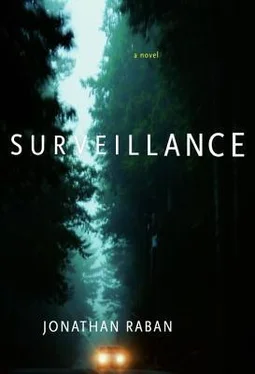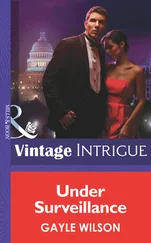“You know how Max Weber defined the state, in terms of its monopoly on violence? We just lost the monopoly. You realize how big a deal that is? Used to be, only states had the armies and the hardware to go to war. This is the first moment in modern history when a bunch of private individuals have the power to take down a state. It’s like you, me, and Minna could get together and go mano a mano with the Pentagon — and what’s truly scary is we could win. Don’t laugh: the state’s set up to defend itself from other states, in the old-fashioned kind of warfare, but when it comes to fighting you, me, and Minna, the state’s clueless. Clueless!
“First off, it doesn’t know who we are. We’re everywhere and nowhere. We don’t wear uniforms. We don’t have a capital city they can bomb. They don’t know if we have a leader, even. They can’t negotiate with us. They can’t send the army, because we haven’t told them where the battlefield’s gonna be. Deterrence? Nope. Containment? Mutually assured destruction? Those things might work when you’re dealing with another state, but when it comes to dealing with the three of us at this table, they’re the wrong implements — like eating soup with a fork. Meantime, they know we have access to stuff that used to be part of their monopoly — chemical, nuclear, biological.”
Lucy joined the game. “And have we got it?”
“Doesn’t matter. We’ve got access. Look at all the nuclear material that’s been floating around on the black market since the collapse of the Soviet Union. Look at the anthrax lab at the U — suppose I have an angry molecular-biologist friend? The essential technology’s all around us, and the government can do very little — frighteningly little — to keep us from getting our hands on it, provided we have the contacts and the moolah. You want more wine in that glass?”
“Please.” This time the bottle stayed on the table.
Augie stabbed a chanterelle with his fork and waggled it at Lucy. “Now look at our enemy. He has the resources, the smarts, the manpower, and he’s hell-bent on attacking the United States and destroying our system of government, because he believes democracy is a blasphemy against his goddamn god.
“And we’ll help him do it. Americans take democracy for granted: they don’t stop to think how delicate and fragile it really is. He only needs to create the right set of circumstances, and we’ll finish the job for him. We’ll do the dismantling and rewrite the laws while he sits at home watching us on CNN, laughing his sorry ass off.”
Lucy was struck by the discrepancy between the size of Augie’s talk and the size of the man himself. His chair was too big for him, and his white mustache looked as if it had been gummed onto the face of an unhappy boy.
Minna said, “You should see our emergency supplies. We’ve got a roomful. We’ve got so much water, and rice, and beans. And…” Lucy saw sudden confusion in her eyes.
“More freeze-dried chicken à la king than you’d want to eat in an entire lifetime,” Augie said. “We just about filled the utility room.”
“My eleven-year-old would approve. She’s always lecturing me about earthquake preparedness. A flashlight and some bottles of Evian water is the best I’ve done so far. I was never any good as a Girl Scout, so I’d make a lousy survivalist.”
“You need duct tape,” Minna said, “and candles. Would anyone care for dessert?”
When lunch was over, Lucy offered to help load the dishwasher, but Augie led her upstairs to his study. Closing the door, he said, “You mustn’t mind Minna. She’s been having trouble remembering things lately — we’re a little afraid that Dr. Alzheimer may be paying us a call.”
Lucy had guessed as much. “I’m sorry.”
He looked out through a tall and narrow window. “Osprey,” his wan voice said.
From the modern California of downstairs, they’d walked into another century. Of all the weird architectural fantasies on Sunlight Beach Road, this room had to be the strangest — a long, warrenlike affair of molded, fussy-looking arches, nooks, alcoves, floor-to-ceiling bookshelves, and an old-fashioned fireplace, its grate piled with fir cones. And it smelled ages older than the house, a pleasing library scent of glue and must and paper fungus. Lucy had the unsettling, head-swimming sense that she’d been here before. Those arches. That oyster-white color. The small plaster bust on a shelf.
“It reminds me of somewhere,” she said.
“It should. It should.” The eagerness was back in Augie’s face.
Groping for the memory, she said, “It’s not…Monticello, is it?”
“Bull’s-eye! You know, you’re the first person to get it? But I guessed you might. Jefferson’s library. It’s kind of impressionistic. I gave a bunch of pictures to a retired architect here on the island, and he did what he could with the space. I was God’s gift to the contractors: we had them in for months, though they seemed to think I was a few sandwiches short of a picnic for wanting it. Tell me, is it insanely pretentious?”
“No, it’s charming.” It was the books that saved it, Lucy thought. They weren’t the kind that people bought for show; there wasn’t a leather binding to be seen. Wherever she looked, she saw more drab paperbacks, white spines gone yellow, titles in German and in Cyrillic lettering. Even when new they would’ve been cheap, shabby things; now they gave off a powerful whiff of the old, fallen Communist world in all its threadbare mediocrity. On Jefferson’s bookshelves, comically displaced, they gave the room an unexpected human warmth and messiness.
“When were you at Monticello?”
“My dad worked for a federal agency — the Bureau of Land Management. He took me on a business trip to D.C. once, when I was ten. He rented a car, and we spent hours and hours at Monticello. He loved the place. I was the bored kid who hated museums and thought D.C. sucked because there were no rides. I lusted after Disneyland, but I remember the library, and my dad squatting down to read the title of every book, the guard dogging him from shelf to shelf like he was a thief. That was cool to see.”
“I used to make weekend pilgrimages to Monticello when we lived in Washington.”
“You were teaching there?”
“No, I got a two-year leave from the U to work for the government, like your father. I was with the National Security Council.”
From Augie’s expression, Lucy gathered that the correct response to this would be to drop dead with admiration.
“In the Old Executive Office Building, on Seventeenth and Pennsylvania. Right next door to the White House. You must have seen it?”
“Well, I guess so, but—”
“Fabulous place. Like the palace of Versailles.” Going to his desk, Augie had to step carefully to avoid treading on the litter of new books on the floor around his chair. Most had the word “Jihad” on their jackets. Beside the closed laptop — and Lucy would have dearly liked to find out what was on its hard drive — an old Royal manual typewriter held a sheet of paper with a few lines of jumpy letters, just too far away for her to read them. A partially eaten stick of French bread lay by the typewriter, shedding crumbs.
He handed her a creased tourist postcard of the Old Executive Office Building, which to Lucy looked less like Versailles than a bad-taste Victorian railroad hotel. The picture meant nothing to her, but she said, “Oh, yes, of course. You’re right. It is fabulous,” thinking how strange it was that he should keep the postcard so close to hand, like a talisman. Lots of people liked to keep photos of their families in sight when they worked; what did it say about Augie that he preferred to commune with this hideous-looking government building?
Читать дальше












